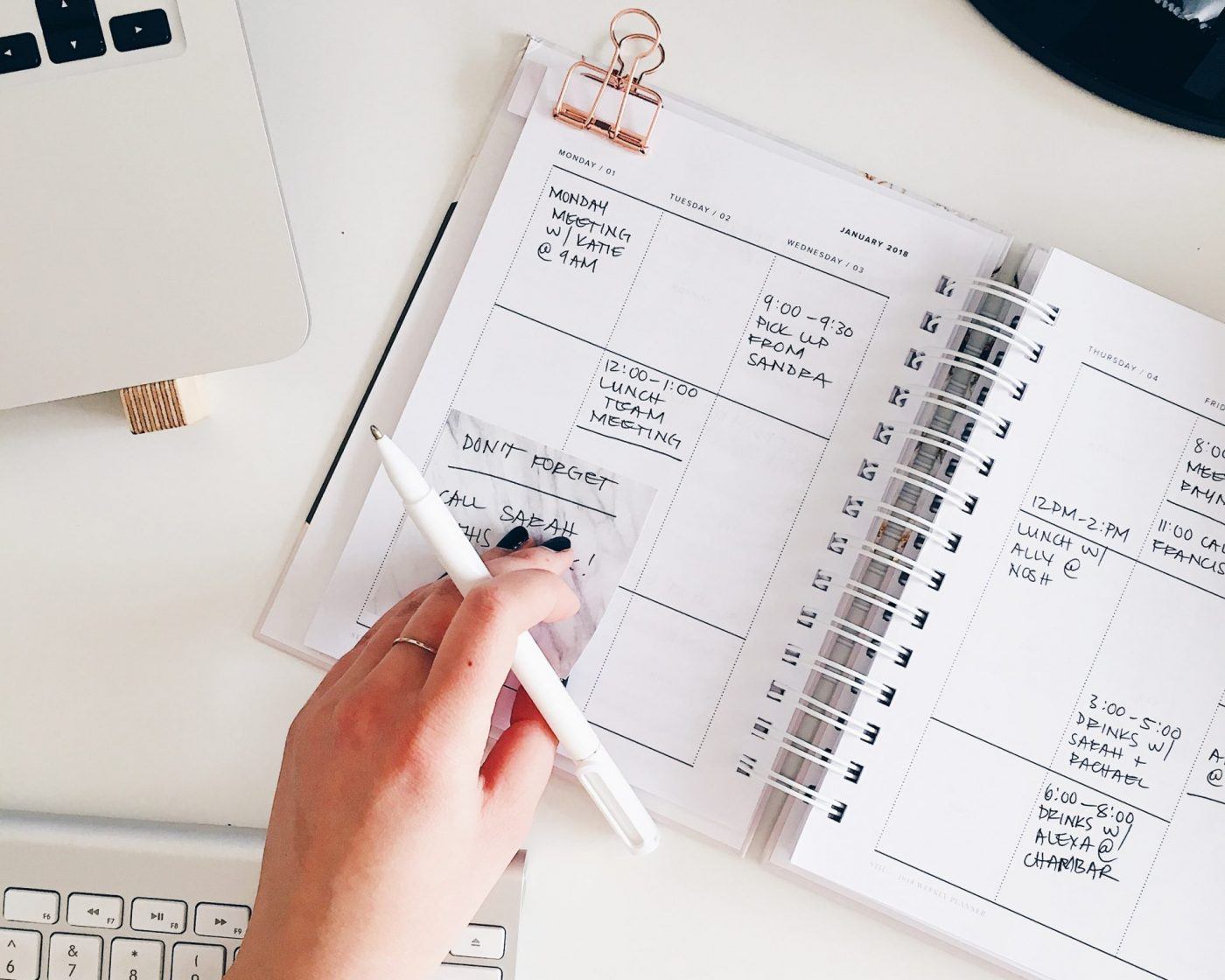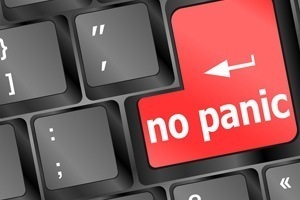Stop being a busy fool and check out the 11 tips below to become more productive whilst working from home.
We all know this is unprecedented. Around the world, millions of people have been thrust into working from home, seemingly overnight.
By now most businesses have successfully managed to overcome the many logistical challenges with regards to IT and infrastructure and its now more about the juggling required to manage home and work life from one space.
It’s a huge challenge for everyone, both for the people affected and those who need to supervise their performance and help them be productive.
I’m ‘of an age’ where I grew up being told that a full-time job is 9-5 and you work from an office. But in my experience, those dated opinions have been on the wane for years and many businesses have been embracing different levels of flexibility for a long time. If after all this is over some businesses decide to continue with more flexible working practices, then that can only be a good thing. In my view.
I’m lucky enough to work for Koozai, who has had flexible working in place, in some shape or form for over 7 years. Over two years ago Koozai made the decision to move to a totally remote working model. There were many reasons to make this move, but a big one was that we wanted our team to have a good work-life balance and to allow them to be as productive as possible.
Despite being part of that decision-making process and knowing it was coming, it still took some time for me and the wider team to settle into the ‘new normal’ and to reach peak productivity.
It got me to thinking, I’m sure in the current situation that there are many people who will be working from home for the first time and that perhaps some of the tips we’ve learned along the way may be useful for others. To be honest, one of the biggest overall wins was working out my productivity cycle and looking at how I could make it work to my advantage. So, I’m going to start there.
Productivity distractions
Part of the issue with productivity is constant distractions. There are the traditional office distractions such as people coming over to your desk and interrupting you, meetings for meeting’s sake, noise, tea breaks, etc. Then there are the digital distractions; the myriad of phone calls, emails, Slack and Trello notifications. And now, if that wasn’t enough, in this current situation we have switched out some of the office distractions for a whole new swathe. The kids wanting help with fronted adverbials, your partner asking where they left their glasses [because of course, you’re the only person who knows where anything is in the house] your parents needing you to fetch their prescription, the constant pinging of the House Party app. It’s relentless!
However, that aside, an often-overlooked element is that most people are never actually taught how to manage themselves, they are simply taught the knowledge or skills they need for their specific job.
Learning how to manage yourself, your priorities, and your time is important and it’s something that’s rarely instilled in people. It’s important to acknowledge, particularly in the current situation. A lack of skill or experience in these areas can hugely reduce productivity and increase anxiety and stress levels. People can become easily overwhelmed with a lot of tasks, some of which are just making them busy and not achieving anything.
So, stop being a busy fool and check out the 11 tips below to become more productive whilst working from home.
Understanding your own productivity cycle
One key aspect that can help you manage your time is understanding your productivity cycle and how you can make the most of it.
It’s important to state that everyone has their own cycle. However, for the vast majority, they’ll find they are naturally more productive in the morning. If this isn’t the case for you, then firstly check that your sleep pattern isn’t the issue. You may find that if you changed your sleeping habits and adopted a more traditional rhythm that you’ll likely achieve more before 10am than at other times of the day.
That said, this will not be true for all people. The key is to find out what works for you.
The way I did this is to embrace my inner geek and analyse my performance. Over a period of a few weeks, I noted down how I felt each hour of the day.
I did this on a scale of 1-5 and I rated my levels of enthusiasm, focus, innovation, confidence, and energy – I also noted my mood. happy, sad, bleurgh – just for good measure. I then analysed this data to work out what my averages were and where my peaks and troughs fell.
Different types of work
The next step is to understand what work you have to do and what type of work it is.
Back in 2016, an American university professor called Cal Newport wrote a book all about his philosophy and strategy for focusing on the things we can do and accomplish. Within this, he categorises work as either ‘shallow’ or ‘deep’.
Shallow work consists of tasks that don’t require a lot of thought and don’t really contribute towards our objectives.
Now, unless you’re fortunate enough to have a personal assistant, you will undoubtedly have a number of mundane tasks that need doing. Things such as replying to emails, responding to Slack messages, using social media, and filling out timesheets. These are all examples of shallow work.
Whilst shallow work can’t be removed entirely, you do need to be careful about how much time you dedicate to it. Shallow work can easily eat into huge parts of your day. It is a big contributor to those distractions we mentioned earlier. The email notifications, Slack alerts, and tool notices create a cycle of seemingly never-ending, inconsequential tasks that prevent us from focussing on more important work.
Deep work is the work that will make a difference. The important stuff. The tasks where you need to get your head down and really focus.
For some, this could be writing a piece of content, or for others, analysing data and extracting and explaining the findings. Whatever it is, it is work that requires you to think deeply and to really concentrate.
List your tasks
The first step then is to list the tasks you need to do and to split them into deep or shallow work. Write everything down. Getting it all into a list frees up your mind from having to remember.
By now you should have knowledge of when you’re at your most focussed during the day and a list of deep work tasks and shallow work tasks. The next step is to plan your time so you’re doing the deep work when you’re at your most productive.
Planning
Even though you may have several tasks that fall into the deep work category it is simply not possible to do focussed work for a solid 3 or 4 hours. You’ll find even if you could do this that you’ll be exhausted later, and it will have a negative effect.
You need to set a routine that works for you.
First of all, give yourself a break. It’s not easy and will take time to get in place.
For example, I focus on deep tasks in 90 min blocks two or three times a day; depending on what needs to be done. For me I do 9-10:30am, 11 – 12.30pm and 3pm- 4.30pm.
I then put in time for shallow tasks in between.
This gives my brain a chance to switch off and recharge before having to focus again on the next deep work task.
Our brains like routine, so consistency is king. If you can have a plan in place that you follow daily or weekly, then this will help. It will become habitual and you’ll find it gets easier as time progresses.
If you manage a team you will need to find a way to balance your productivity with their needs. It may not be feasible for you to be totally uncontactable for hours at a time.
For me, working in an agency environment, there are lots of different team members, all of whom have different productivity cycles and who need quick responses on queries or help with decisions. So, even though I like to work 7am – 4.30pm, it’s not possible for me to simply switch off entirely after 4.30pm or ignore people entirely for huge parts of the day.
I make sure the team know I am still contactable in an emergency when I’m in focus time and I am usually available until around 6pm each day. But I’m not doing any focussed work in that period, it’s just much more reactive. I’m just there if needed.
Making yourself accountable
Just blocking out time won’t be enough. You need to adopt a zero-tolerance approach. Newport says “you have to treat your attention with a lot of respect like a professional athlete might treat their body”
You need to ensure you make yourself accountable as our brains tend to wander. It’s all too easy to think “oh I’ll just have a quick glance at my inbox, it won’t hurt.”
Don’t do it.
It will.
Although it may seem like a small thing, the cost of trying to juggle more than one task at a time is huge.
Gerald Weinberg a computer scientist, psychologist, and author has said that focussing on additional tasks can annihilate up to 80% of your productivity.
When you look at it like that, you realise it simply isn’t worth that quick peek after all.
Protect the time
You also need to protect the time you’re setting aside for your deep work. I block this in my calendar and treat it like I would an important meeting. I let the team know I’m in focus time and if someone requests a call or meeting during that time, then it’s declined and needs to be scheduled else when.
To be honest, this also helps the team, as they can all see in my calendar when I’m planning to do focussed work and when I’ll be checking emails/Slack messages. So, they know they won’t have to wait long for a response.
Preparation is key
To return to the athlete analogy, you need to warm up ready for your deep work. In order to help your mind prepare you may find it helps to have some regular steps in place in the lead-up to that time. A little ritual.
For example, I usually make myself a drink, and ensure I’m comfortable, put a message in our internal Slack channel to let people know I’m going into focus time. This tells my brain that I’m closing the door to the outside world and am about to focus on my specific task.
For you, the ritual may be different. You could pop a sign on your office door to say you’re not to be disturbed. You could clear your desk and put your phone away in a drawer. You need to find what helps you signal to your mind that it’s time to focus
Clear goals
Knowing exactly what you want to achieve as the outcome is also important and keeps you focussed. So, if you’re writing a blog, for example, know what word count you’re aiming for and whether the outcome includes proofing the piece, sourcing images and uploading it to the back end of the website or if it’s just the words on the page that’s the outcome. Be as specific as you can, and this will help you concentrate on exactly what needs to be done in the time.
Trick yourself
Another tip I have is to try and trick your mind. Tell yourself you have a shorter deadline than you actually do. So, if you think a task is going to take around 2 hours then tell yourself you need to have completed it within 90 minutes. This will help you work just a little bit harder. It’s like a HiiT workout for your brain.
Train your brain
Focus and attention are like a muscle, you need to train them, and when you do they get stronger. This isn’t as easy as it sounds, and it took me a while to get the hang of this. But it will be worth it.
You need to be mindful and train your brain by thinking of one single problem and to hold that problem for a set period. You need to practice identifying when your mind begins to wander and to bring it back to the problem that you are labouring over.
For some reason, I found it easier to do when I was walking, as soon as I found myself being distracted by the weather, road-noise, birds…whatever, I’d immediately come back to the problem. Over time this got easier to do and it’s now something I can switch to with relative ease.
Unwind
The final step is to ensure you unwind and allow your mind to completely switch off. It’s the mental equivalent of recharging your phone.
We’re all so used to being constantly available but there’s a limit to how long anyone can focus. No matter how busy you might be, fatigue will set in and it will end up being counterproductive.
So, make sure you schedule in breaks.
Even on the craziest of days you can take 10 mins to grab a drink, take a short walk, or spend time with your family.
Trying to stick to taking a lunch break and powering down for the day by a certain time may seem like a pipe dream but like everything else, you can learn to relax. The result will be that you return refreshed and way more productive than if you’d have simply powered on through.
So that’s it. 11 steps to becoming more productive when working from home, I hope you’ve found it helpful.







Leave a Reply